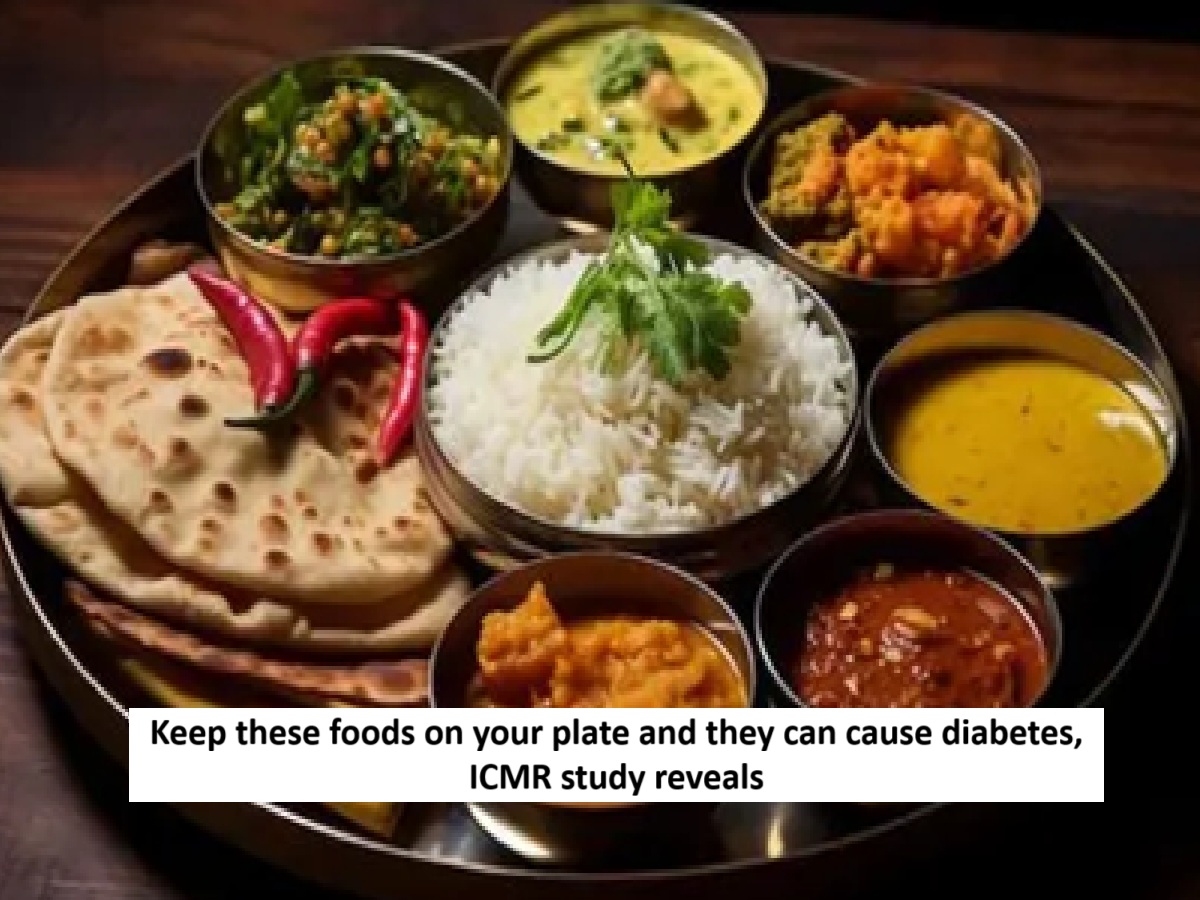
News Topical, Digital Desk : The Indian thali is considered nutritious in many ways, but a recent report from the Indian Council for Medical Research (ICMR) has revealed something new. This new report found that your food plate is contributing to the growing health problems in India.
This research, published in Nature Medicine, found that the average Indian diet is high in carbohydrates, accounting for 62% of daily calories, while protein and healthy fats are alarmingly low. The study warns that this imbalance is directly linked to the rising incidence of diabetes, prediabetes, and obesity across the country. Let's learn more about this study.
What does the study say?
The study found that approximately 62% of daily calories in the Indian diet come from carbohydrates, which is a high global figure. Most of these carbohydrates come from white rice, refined grains, and added sugar.
In terms of regions of the country, white rice is the most prominent staple in South, East, and Northeast India. Wheat dominates North and Central India. Millet is a staple in the diet only in a few states, such as Karnataka, Gujarat, and Maharashtra.
How is the Indian diet harmful to health?
Eating a high-carbohydrate diet is associated with a 15-30% increased risk of type 2 diabetes , prediabetes, and abdominal obesity. The study also found that while total fat intake was within recommended limits, saturated fat intake exceeded safe levels and intake of healthy fats like omega-3s was too low.
Meanwhile, in 21 states and union territories, people are consuming more than 5% of their calories from added sugars above the recommended limit. Protein deficiencies are also evident, with people consuming only 12% of their protein intake, less than the recommended limit (15%).
In such a situation, the diet should be healthy and balanced.
This ICMR report clearly shows that we need to make changes to our diet. To make your diet healthy and balanced, you can include the following foods.
- Nuts and seeds – Almonds, walnuts, flax seeds and chia seeds provide protein and healthy fats.
- Greek yogurt or curd – Protein and probiotics are a good option for gut health.
- Pulses and legumes – Lentils, chickpeas, kidney beans and mung beans are excellent plant proteins.
- Paneer – Rich in casein protein and calcium; eat it with vegetables for a balanced diet.
- Eggs – A complete source of protein that is versatile and economical.
- Soy and Tofu – Rich in protein and low in carbohydrates, a great option for vegetarians.
- Fish – Include fish in your diet, especially salmon and mackerel, for protein and omega-3.
- Lean chicken or turkey – Choose grilled chicken or steamed chicken instead of fried chicken.
--Advertisement--

 Share
Share



